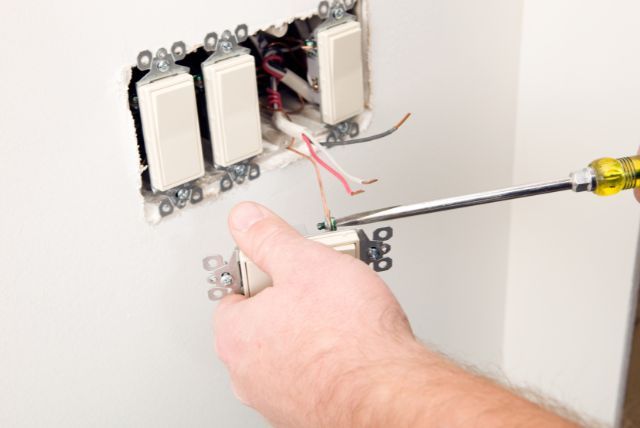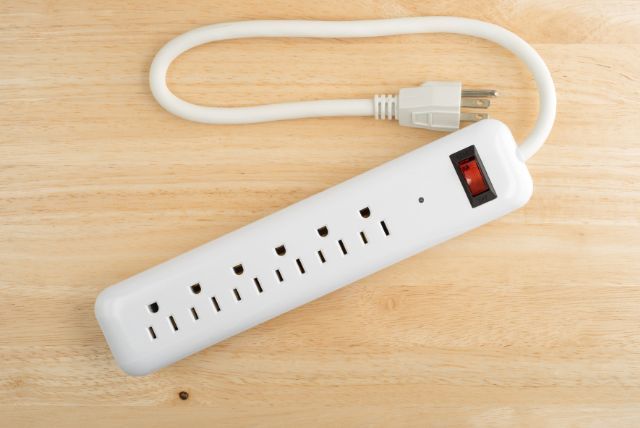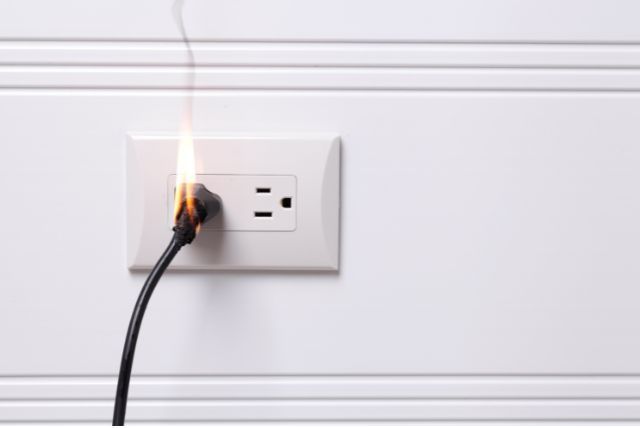What Electrical Work Requires A License

Table of Contents
ToggleTLDR: Electrical permits are crucial for ensuring safety, compliance with building codes, and integrity of electrical systems in both residential and commercial settings. They are required for specific projects like new installations, service upgrades, rewiring, and installations of panels, hot tubs, generators, and solar panels. Permits safeguard against electrical hazards, ensure code compliance, hold parties accountable, and provide valuable documentation for future reference. Skipping the permit process can lead to significant risks, including safety hazards, insurance issues, and resale complications. Obtaining permits, therefore, not only ensures safety and compliance but also protects property value and facilitates smooth property transactions.
Electrical work plays a vital role in our modern lives, powering our homes, businesses, and industries. However, it is essential to recognize that not all electrical work can be undertaken without oversight. In many jurisdictions, electrical permits are required for specific types of projects to ensure safety, compliance with building codes, and the integrity of the electrical system. In this blog, we’ll explore what electrical work typically requires a permit, the reasons behind permit requirements, and the importance of adhering to these regulations.
Understanding Electrical Permits
What is an Electrical Permit?
An electrical permit is an official document issued by local authorities or building departments that grants permission to perform specific electrical work within their jurisdiction. These permits are a way for regulatory bodies to monitor and oversee electrical installations, ensuring they meet safety standards and building codes.
Why are Electrical Permits Necessary?
Electrical permits are essential for several reasons:
- Safety: The primary purpose of electrical permits is to safeguard public safety. Ensuring that electrical work is performed correctly reduces the risk of electrical shock, fires, and other hazards.
- Code Compliance: Electrical codes and standards are in place to maintain the integrity of electrical systems. Permits help enforce compliance with these codes, promoting consistency and reliability.
- Accountability: Obtaining an electrical permit holds the responsible party accountable for the quality and safety of the work performed.
- Documentation: Permits provide a record of electrical installations, which can be valuable for future inspections, maintenance, or property transactions.
Electrical Permits for Residential and Commercial Projects
Electrical permits are a critical requirement for a wide range of electrical projects in both residential and commercial properties. These permits are necessary for ensuring safety, compliance with building codes, and the overall integrity of the electrical system. Here’s an overview of common projects requiring permits and the benefits of obtaining them.
Projects Requiring Electrical Permits
Whether for residential homes or commercial buildings, several types of electrical work require permits, including:
- New electrical installations: Wiring for new constructions, home additions, commercial buildings, factories, or office spaces.
- Service upgrades: Increasing electrical service capacity, such as upgrading from 100-amp to 200-amp service, is a common requirement across residential and commercial properties.
- Rewiring and circuit additions: Adding new circuits or rewiring existing ones necessitates permits, ensuring that the work meets current electrical standards.
- Panel and subpanel installations: The installation or replacement of electrical panels and subpanels requires oversight to confirm adherence to code requirements.
- Special installations: Electrical connections for hot tubs, swimming pools, commercial machinery, and HVAC systems often require permits due to their complex nature and safety implications.
- Backup and renewable energy installations: Installing backup generators and solar panels involves significant electrical work, requiring permits to ensure proper integration and safety.
Benefits of Obtaining Electrical Permits
Obtaining electrical permits offers numerous benefits, crucial for both homeowners and business owners:
- Safety: Permits guarantee that electrical work adheres to established codes, significantly reducing the risk of hazards such as fires or electrical shocks.
- Insurance coverage: Many insurance policies require electrical work to be permitted and inspected, ensuring coverage for damages. Unpermitted work may lead to denied claims, leaving property owners financially exposed.
- Resale value: For residential properties, permitted work enhances home value and streamlines the sale process, as potential buyers and real estate agents often verify permits and inspections. For commercial properties, it ensures compliance and reliability, appealing to savvy investors.
- Liability protection: Contractors and electricians who secure permits are held to a higher standard of accountability, ensuring the quality and safety of their work. This provides peace of mind to property owners and protects against liability issues.
Skipping the permitting process might seem like a shortcut in terms of time and expense, but it can lead to significant drawbacks. The absence of a permit can result in safety risks, insurance complications, and challenges in selling or upgrading the property. Ultimately, electrical permits are a vital aspect of property development and maintenance, ensuring that electrical installations are safe, compliant, and add value to the property.
The Permitting Process
Steps in Obtaining an Electrical Permit
The process of obtaining an electrical permit typically involves the following steps:
- Application: Apply for an electrical permit to the local building department or relevant authority. The application should include details about the project, such as the scope of work and location.
- Review: The building department reviews the application to ensure it complies with local codes and regulations. This may involve plan reviews and inspections.
- Approval: Once the application is approved, the permit is issued, specifying the work’s scope and any conditions or requirements.
- Inspection: Electrical work must be inspected by a qualified inspector at various stages of the project to ensure compliance with codes and standards.
- Final inspection and approval: After the work is completed, a final inspection is conducted to ensure it meets all requirements. Upon passing the inspection, the project is approved.
Potential Consequences of Unpermitted Electrical Work
Engaging in electrical work without the required permits can have serious consequences, including:
- Fines and penalties: Local authorities may impose fines and penalties on individuals or businesses found performing unpermitted electrical work.
- Legal issues: Unpermitted work can lead to legal disputes, particularly if it results in damages, injuries, or code violations.
- Increased costs: Correcting unpermitted work often involves additional expenses to bring the project into compliance, potentially costing more than obtaining a permit initially.
- Insurance complications: Insurance providers may deny coverage for damages resulting from unpermitted electrical work.
- Resale difficulties: When selling a property, unpermitted electrical work can complicate the transaction, delay the sale, or lead to price reductions.
Key Takeaways
Electrical work requiring permits serves as a critical aspect of safety, compliance, and accountability in both residential and commercial settings. Understanding which electrical projects necessitate permits is essential for homeowners, business owners, and contractors alike. By adhering to the permitting process, we not only protect ourselves and our properties from electrical hazards but also contribute to the overall safety and reliability of electrical systems in our communities. In the world of electricity, safety and compliance should always be a top priority, and that begins with recognizing when an electrical permit is required. If you need electrical work done, working with a licensed electrician is the best way to guarantee the work is done safely and correctly!
Questions and Answers About Electrical Permits
What is an electrical permit, and why do I need one?
An electrical permit is an official document issued by local authorities that allows specific electrical work to be performed within their jurisdiction. You need an electrical permit to ensure the safety, compliance with building codes, and integrity of your electrical system. It’s essential for reducing risks such as electrical shocks and fires, ensuring your project adheres to local electrical codes, holding contractors accountable, and maintaining proper documentation for future reference.
For what types of projects do I need an electrical permit?
Electrical permits are required for a wide range of projects in both residential and commercial settings. These include new electrical installations, service upgrades, rewiring, circuit additions, panel and subpanel installations, and special installations such as hot tubs, swimming pools, and backup generators. Essentially, any significant electrical work that modifies your existing system or adds to it will likely require a permit.
What are the benefits of obtaining an electrical permit?
Obtaining an electrical permit ensures that your electrical work is safe, compliant with codes, and covered by insurance. It also protects your property’s value, facilitates smoother property transactions, and protects you from liability by holding contractors accountable for the quality and safety of their work. Skipping the permit process can lead to safety hazards, insurance issues, and complications during resale.
What is the process for obtaining an electrical permit?
The process typically involves applying for a permit with your local building department, providing details about your project. Your application will be reviewed to ensure it complies with local codes and regulations. Upon approval, the permit is issued, and your work can commence, subject to inspections at various stages and a final inspection upon completion to ensure compliance with the electrical codes and standards.
What are the consequences of not obtaining an electrical permit?
Skipping the permit process can result in fines, legal issues, increased costs to correct the work to meet code requirements, insurance complications, and difficulties in selling your property. Unpermitted work can lead to serious safety hazards and financial liabilities, significantly outweighing the time or cost savings of avoiding the permit process.











Leave a Reply